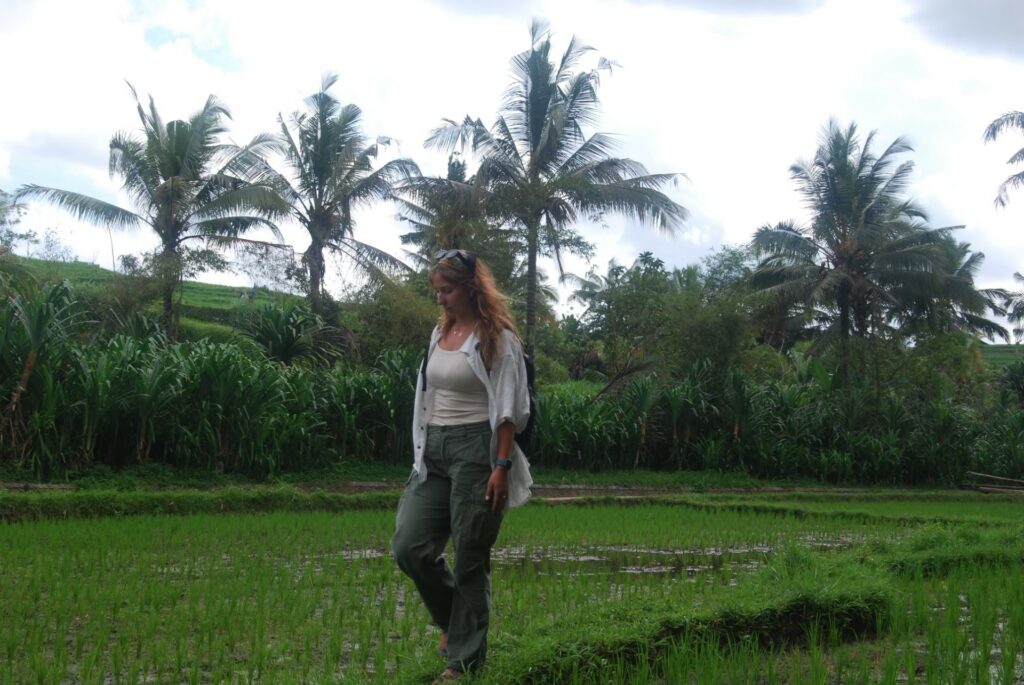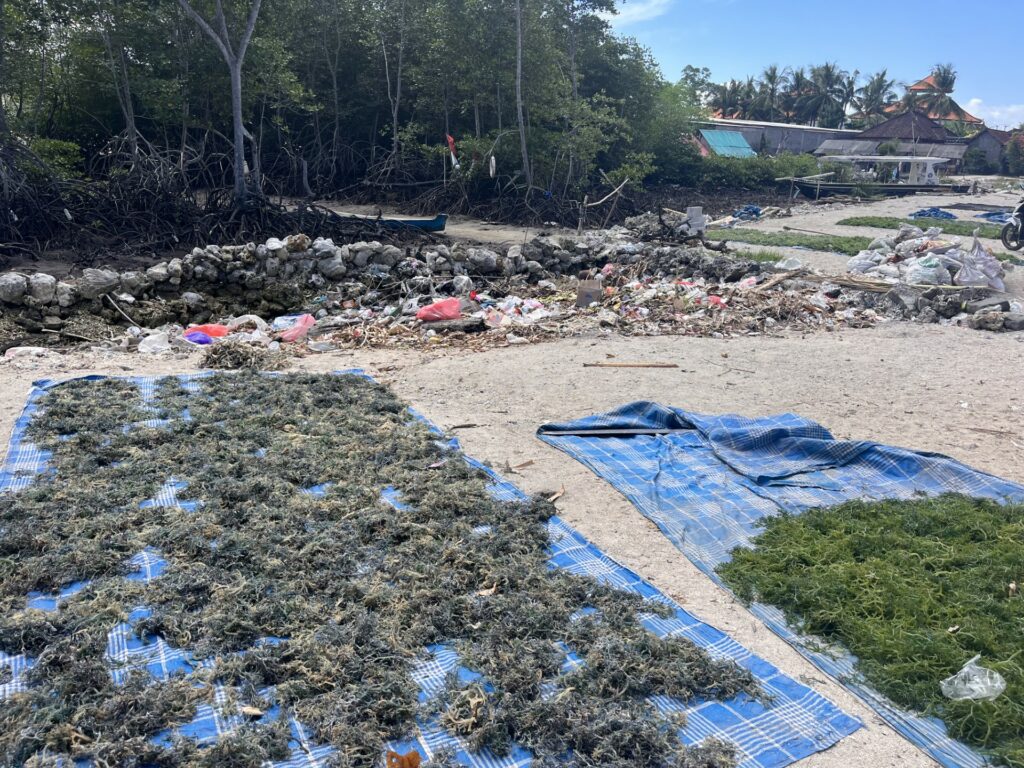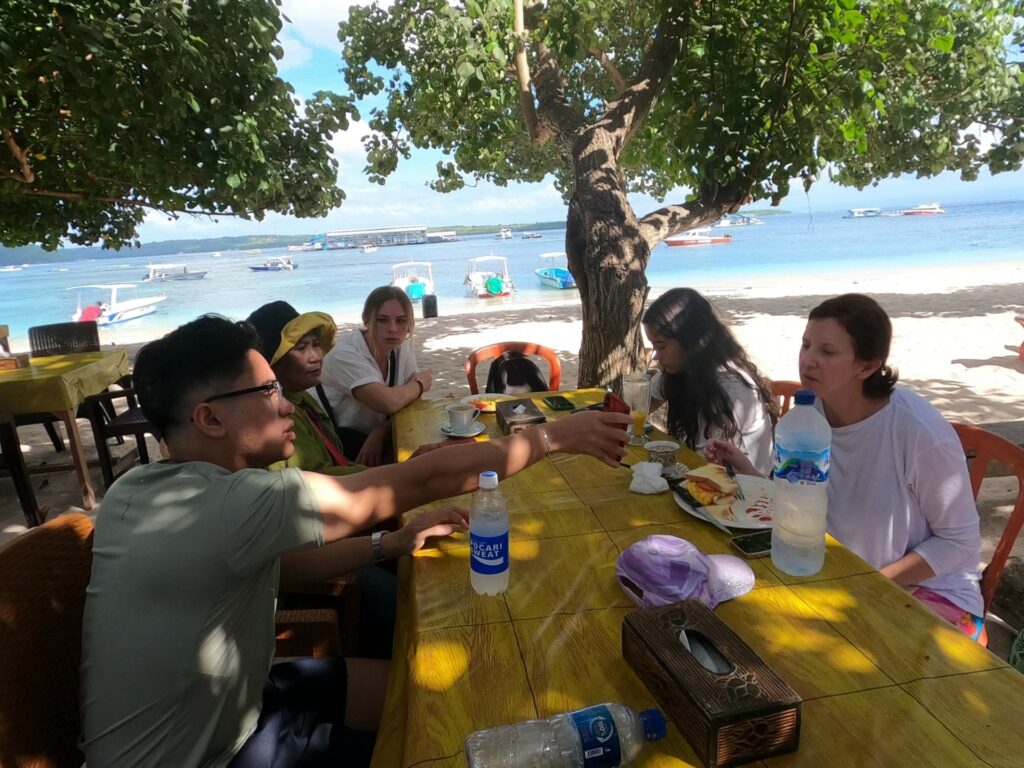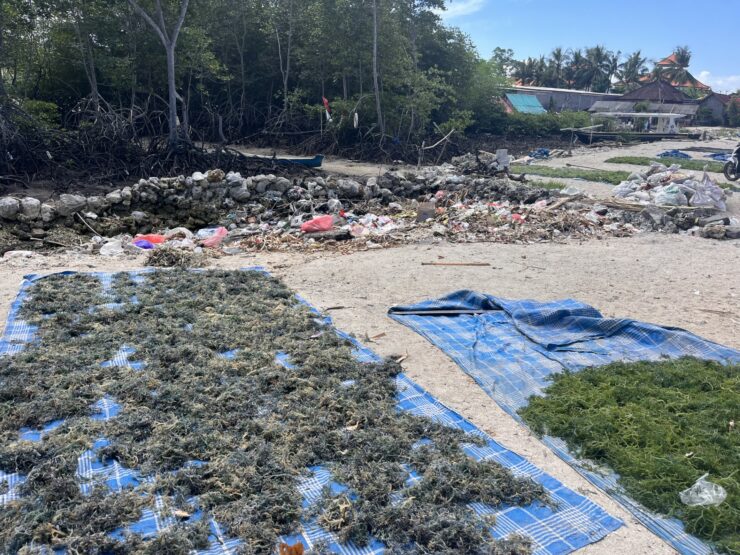The following findings are sourced from; Tourism Induced Impacts on Balinese Economy, People, and Aquaculture, a report prepared by a University of Kentucky undergraduate researcher, Abbey McNely. Abbey’s work in Bali was part of a cohort experience in the summer of 2023, led by a UK Geography professor, Dr. Betsy Beymer-Farris.
“The massive amounts of plastic that plague our oceans, land, and even our bloodstreams are not to be ignored. In recent years, the amount of plastic pollution due to tourism in tropical environments has afflicted the oceans and marine life requires a solution. Since the 1980s, there has been an influx of tourism in Bali, Indonesia. Bali has been struggling to deal with this plastic pollution rising, especially due to the fact that Bali does not have a set plastic management solution, and it has been detrimental to marine life and local life in Bali.”
Abbey McNely’s research examines the impacts of tourism on Bali’s economy, aquaculture, and indigenous peoples, as well as asking if the reliance of tourism is going to prove sustainable for Indonesia.
The methodology employed in this project primarily involved direct observation of tourists, local residents, and seaweed farmers. The team also actively sought to establish connections with local community, seaweed farms, and businesses across Bali, Lembok, Nusa Penida, and Nusa Lembongan. The approach consists of informal interviews conducted with both local residents and international tourists. Additionally, participation in the UN Sustainable Tourism Conference provided insights into the Indonesian government and tourism sector’s endeavors towards integrating sustainability into the tourism industry. Discussions with tourists mainly revolve around their place of origin, duration of stay, and use of single-use plastics in Bali. Informal conversations with local residents centered on their tenure on the island, quality of life, and perspectives on tourism and tourists in Indonesia.

Photo 1: Abbey McNely examining litter at a local rice farm in Selat, Bali.
The impact of tourism is a principal factor for Bali’s wellbeing, and its removal would entail extreme repercussions. The solution lies in embracing various forms of sustainable tourism, which must be endorsed and nurtured to sustain Bali’s economy without further harming the environment.
Bali is actively combatting greenwashing by guaranteeing consumers have evidence and authentication of key sustainability aspects in tourism, such as the prohibition of single-use plastics. The conference further acknowledged the imperative for sustainable tourism to adopt a circular economy approach, highlighting the importance of minimizing material waste to decrease resource consumption. This entails practices like recycling, reusing, sharing, and refurbishing materials and products for extended periods. While Indonesia’s efforts to boost tourism revenue are commendable, it’s crucial to address the significant environmental and socio-cultural impacts already being experienced due to tourism activities.
The significance of aquaculture and seaweed cultivation in Bali extends beyond economic profit, including the history and cultural heritage for local Balinese and Indonesian communities. Seaweed farming has created a livelihood for the people of Indonesia, and has propelled the nation to become the world’s second-largest producer of seaweed. However the persistent challenges posed by tourism of the livelihoods of seaweed farmers, coupled with declining annual incomes, have led to a large population employed in seaweed farming facing poverty.
Seaweed farms have experienced a significant increase in plastic pollution, impacting both the production and growth of seaweed, as well as the effectiveness of farming practices. Additionally, snorkeling and tourism boats around the islands (such as Nusa Penida, Nusa Lembongan, and Lembok) has further exacerbated the issue by polluting marine ecosystems and constraining the growth and vitality of seaweed.

Photo 2: Seaweed Farm in Nusa Lembongan with piles of trash.
While Abbey’s research is not yet completed, her initial investigations into Indonesia’s tourism landscape and the field work undertaken have prompted a shift in her understanding of whether tourism is beneficial or detrimental to the environment, particularly in Bali. There is often a misconception that sustainability solely entails conservation efforts, which does not accurately reflect the complexity of the issue.
In summary, the primary dependence on tourism in Indonesia, particularly in Bali and its neighboring islands, heavily impacts the local populations. Preserving the cultural heritage of Bali’s indigenous people remains crucial for the island’s vitality. Although the near-total reliance on tourism nearly devastated Indonesia’s economy in 2020, there was an opportunity to diversify sectors such as aquaculture, agriculture, and services. However, the country continues to persist in leaning on the economic benefits that tourism offers.

Photo 3: Research group having lunch in Nusa Penida with local seaweed farmer.
As Abbey continues this project in the summer of 2024, she will conduct qualitative interviews to examine individual perspectives of both local residents and tourists regarding tourism in Bali. Additionally, Abbey will investigate the environmental risks of single-use plastics and evaluate the effectiveness of the Indonesian government’s ongoing efforts to implement a ban. Recognizing the significance of assessing sustainability, beyond an environmental lens, is crucial for ensuring a successful future for Bali.



























